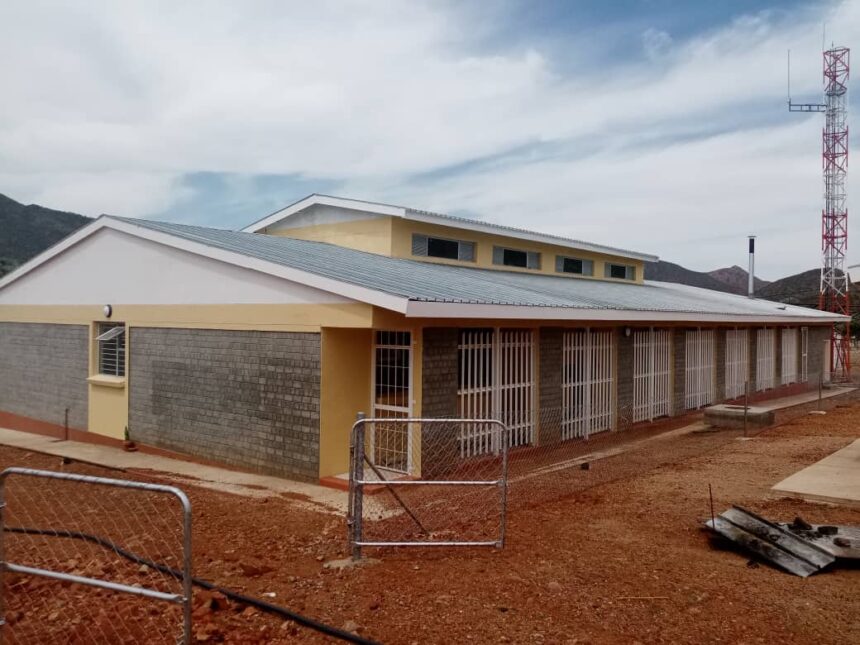EPUPA – Residents of the Epupa constituency in the Kunene region had high hopes of accessing improved healthcare services, including maternal care, after the government had prioritised the construction of the Epupa Health Centre.
However, the residents’ hope of getting access to improved healthcare is now in jeopardy due to possible delays to the construction and finalisation of the facility. The slow progress at the construction site has sparked a blame-game among the various contractors and stakeholders, as the project faces setbacks.
Kunene health director Thomas Shapumba revealed that construction on the Epupa clinic, launched on 25 March 2014, was initially set to be completed within a year for N$11.4 million. The contract was, however, terminated in March 2016 due to poor performance and workmanship by the previous contractor.
During the current financial year, the health ministry allocated N$9.6 million of its N$10.9 billion budget for the construction and upgrading of numerous primary healthcare clinics in the Kunene region, including the Epupa clinic. Despite this allocation, progress has remained slow and frustrating for the awaiting residents.
“There is progress, and the site is 95% complete. But there were delays caused by procurement challenges for construction materials. These issues have now been resolved,” said Shapumba. He anticipates completion by February 2025, emphasising that no other significant obstacles remain.
However, the main contractor, Justus Rudolf, attributed the delays to the health ministry, citing the late appointment of sub-contractors responsible for other tasks.
“We are building contractors, but other specialised contractors are required for tasks like solar panel installation and electrical work. Our part is complete; we are only addressing adjustments from changes in the plan,” he stated.
He pointed to the ministry’s slow procurement process as a significant factor behind the delays. “The ministry didn’t appoint other contractors on time, which prevented us from proceeding with certain tasks. For example, you can’t plaster a wall before electrical wiring is installed,” he observed.
Rudolf emphasised that the project’s completion depends on the presence of all necessary contractors. “The building can only be completed when all stakeholders are on site. While our original scope is done, additional work resulting from variations added to the project remains outstanding. Both the ministry and the principal agent are aware of this,” he stressed.
He also mentioned recent design changes, including rerouting water pipes, as part of the ongoing adjustments.
Despite these challenges, Shapumba maintained that the project would be completed by February 2025.
Community members employed at the site have likewise been accused of contributing to the project’s delay through theft of construction materials.
“Many of the semi-skilled workers stole materials meant for the clinic. Some even used the clinic’s paint to decorate their homes,” alleged a male source who declined to be named for fear of reprisals.
Rudolf confirmed the theft, noting that criminal cases were opened with the police. “A significant amount of material was stolen by workers. Some of it was recovered, but unfortunately, some had already been used,” he said.
Generational challenges
Women in most remote areas of the Kunene region, such as Ohajuua and others, are eager for a new and improved healthcare experience of giving birth in a hospital under the medical guidance of midwives.
Since time immemorial, they have been delivering their babies at home.
“We used to live in the mountains and the villages. But the government convinced our grandparents and parents to come here. It seemed a good thing then because we thought it meant liberation. Our mothers gave birth to us in the traditional way, with no proper care, and this has become a generational issue. We want to give birth in comfort, safety and with the medical expertise that hospitals offer,” said Mukoomukuvare Tjisuta, a young mother of six children, all delivered at home.
Tjisuta, who cannot remember her age, has never experienced giving birth in a hospital due to the distance. “The only hospital we have is in Opuwo, 300 kilometres from here. It’s far and expensive to get there. There is no reliable transport to ensure you reach the hospital without giving birth on the way. The roads are terrible, and it feels safer to give birth at home,” she added.
However, she admits that since she has never experienced giving birth in a hospital, she cannot speak of its benefits.
ljason@nepc.com.na


